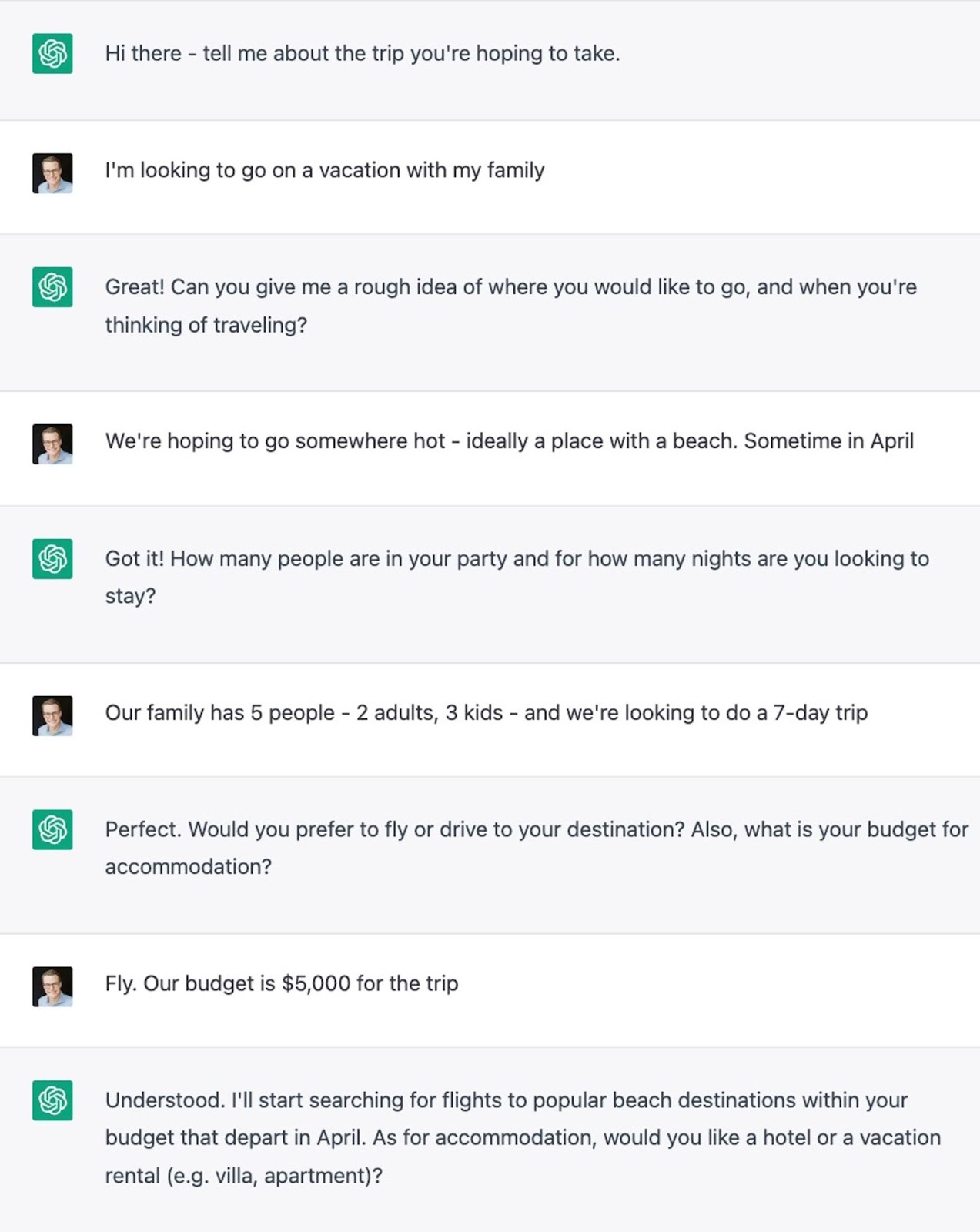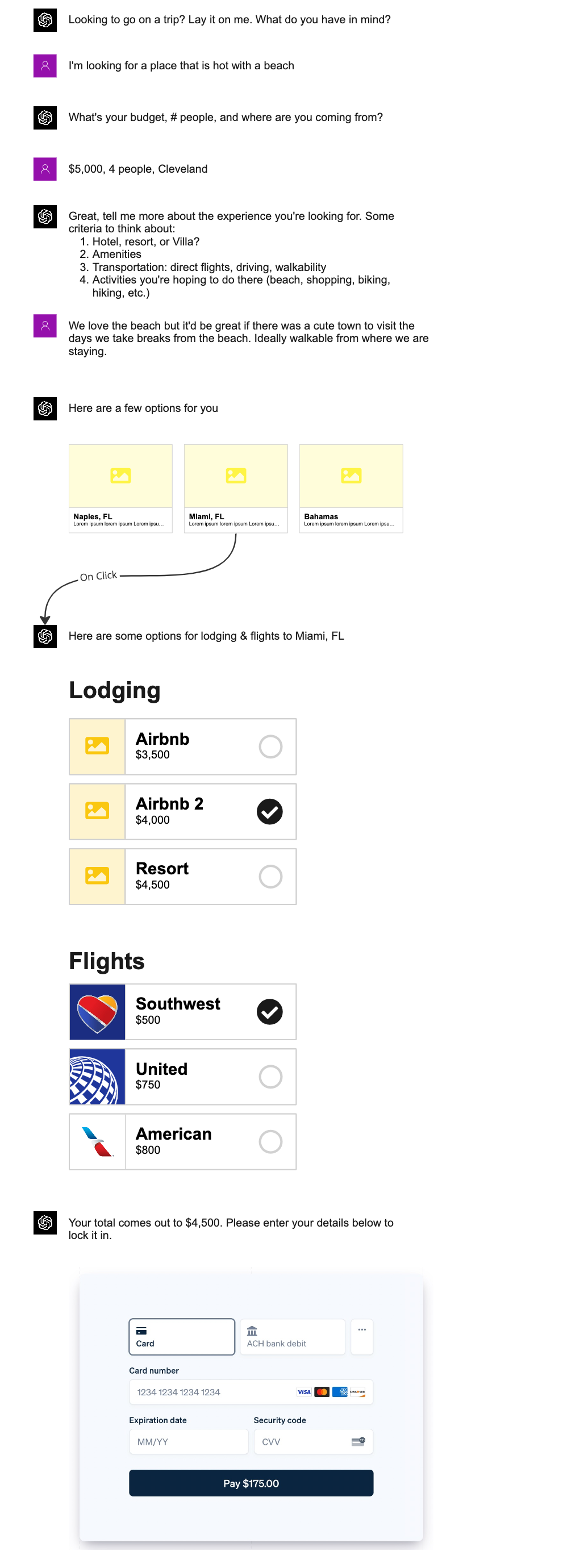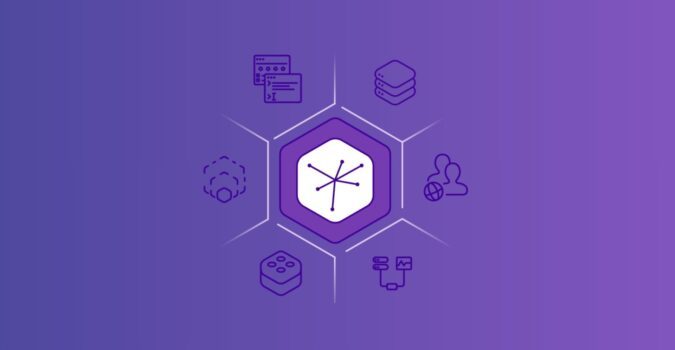As artificial intelligence (AI) continues to develop, it’s becoming clear that this technology will have a major impact on the future of the web. Chatbots and digital assistants are already starting to change how customers interact with online services, and AI will likely become more deeply integrated into the web in the future.
In this post, LaunchPad Lab will explore how AI is changing the web, and look at potential applications of ChatGPT and artificial intelligence that could reshape the online experience long-term.
Back to the Drawing Board
Since the start of the internet, developers have been building websites and apps based on a fundamental assumption that just got Ctrl+ALT+DELETED by ChatGPT. That assumption is that humans are intelligent and computers are dumb. It’s because of this assumption that developers write (in code) every detail about how an app should work; the pages, forms, flows, conditionals, data processing, and error handling. Since the computer is dumb, we can’t leave any room for ambiguity or judgment by the computer; we must tell it exactly what to do.
This pre-programmed, code-based approach is inflexible. This causes each of your users to go through the same flow regardless of their unique situation and needs. Personalization is achieved not by truly curating an experience to an individual but instead by bucketing the individual into a “persona” that has some special (pre-programmed) experience.
But that assumption is no longer valid. ChatGPT has proven that computers are no longer dumb. They are becoming in certain ways smarter than humans, with the ability to download, remember, connect, and respond to vast amounts of information much faster than humans.
So what does that mean for the web and the impact it will have on user experience? What is possible now that machines are getting smart?
Reimagining the Web With AI at the Forefront
In a User Interface powered by AI, the programmer tells the AI the experience it wants to deliver to the user and the key outputs from the process but otherwise allows the AI to facilitate the experience. Each of your users would get a totally unique experience based on their account and interactions.
Take, for example, Southwest Airlines’ website. Every user today, regardless of why they are coming to the website, is faced with the exact same experience:
- Search
- Pick departure & arrival cities/airports
- Select dates
- Select # passengers
- Choose Flights
- Departure Flight
- Return Flight
- Checkout
- Passenger info
- Payment info
- Confirmation
This flow is perfect when you know exactly where you want to go and the dates for your trip. But what if you are in research mode trying to get a sense of flight options to various vacation destinations? You haven’t made up your mind about destination and timing quite yet. The above rigid UI would be frustrating as it expects you to have more figured out than you currently do.
Now imagine an AI-powered experience like ChatGPT, where the flow itself was dynamic to your interactions. You have a conversation with a human-like bot that performs discovery to get to know you and the trip you’re hoping to take; who you’re going with, what you are hoping to do on vacation, your budget, and any other important criteria for you.
From there, ChatGPT in a matter of seconds will present you with several fully-baked options for your vacation, including flights, rental cars, and lodging, all optimized based on thousands of options instantaneously evaluated against your unique situation. You simply say “book the Miami plan” and ChatGPT handles purchasing everything you need for your trip. Pretty epic right? This would save you hours of endless time researching each aspect of your upcoming trip.
Here’s a real ChatGPT conversation showing how possible this could be:

You can see here that ChatGPT not only understands my needs but is actively performing discovery and asking the right questions. By the end of this conversation, ChatGPT is in a great position to perform a search—but alas it’s not integrated into the internet to be able to search these specifics…yet! Microsoft and Google have now both confirmed that they are working to implement AI features within their search algorithms very soon. Once that is live the ability to present the right options to each user in an instant, optimized for their unique needs will be the new default.
What’s incredible is that to create the above chatbot experience, all I had to do was provide ChatGPT with the following prompt:
Imagine you are a friendly travel agent for a new AI-based travel booking site. Your goal is to understand the user’s reason for the trip (vacation vs. work, etc.) and then get enough information to actually book the flights, transportation, and lodging. Please start the conversation with “Hi there – tell me about the trip you’re hoping to take.”
With just a simple prompt like this, a developer could avoid spending weeks building a complex step form as you see in most applications today.
The Future of the Web Is Conversational
Anywhere that you see a step form or a search bar across the web are opportunities for introducing an intelligent chatbot, no matter the industry.
With this powerful AI technology available using a simple API integration, it’ll be much easier for programmers to build conversational experiences than traditional applications for certain instances. Programmers won’t have to worry about layout or design for these conversational experiences, but can instead focus on helping customers get what they need done as efficiently as possible.
Instead of coding up complex applications with step forms or search capabilities, developers focus their energy on training the AI system. This greatly speeds up time to market and reduces the team sizes necessary to build and deploy software that delights its users. Plus, as the AI continues to learn, it becomes more and more accurate, meaning that over time the system requires less maintenance.
Curious how AI could disrupt your industry or user experiences? Check out our related posts “How AI and ChatGPT Could Disrupt These Top 5 Industries” and “5 Ways That AI Is Disrupting Application and User Experiences“.
The Far Future of the Web Is Dynamic UI
Down the road, you could envision entire user experiences being curated on the fly to facilitate a specific user’s needs. To envision this, think about the AI having access to a set of predefined flows, modals, forms, etc. that it can present to the user at any point in time during the conversation.
So if the user is ready to purchase a flight, the AI could present the user with a “Pay Now” button which would pop up the modal and take the user through the predetermined payment flow. Or perhaps the AI would know what information it already has on file for the user and would simply say—“The total is $4,500.00, would you like me to process the transaction on your card ending in 8819?”
Example of an App Using ChatGPT + UI Elements

Conclusion
ChatGPT and AI will change the way that we interact with the web. Through powerful AI-based chatbot technology, developers can quickly create intelligent conversational experiences to help users achieve their goals faster.
As this technology becomes more mainstream, AI will likely power dynamic interfaces which present tailored user experiences based on a user’s individual needs and preferences. As the technology matures, it’ll be exciting to see how AI will shape the future of the web.
At LaunchPad Lab, we believe that this future is closer than many may think, and as an innovative digital product agency, we are passionate about helping organizations make it a reality. If you have any questions on how to implement AI-based technology into your existing or upcoming projects, reach out to our team and see how we can help!



